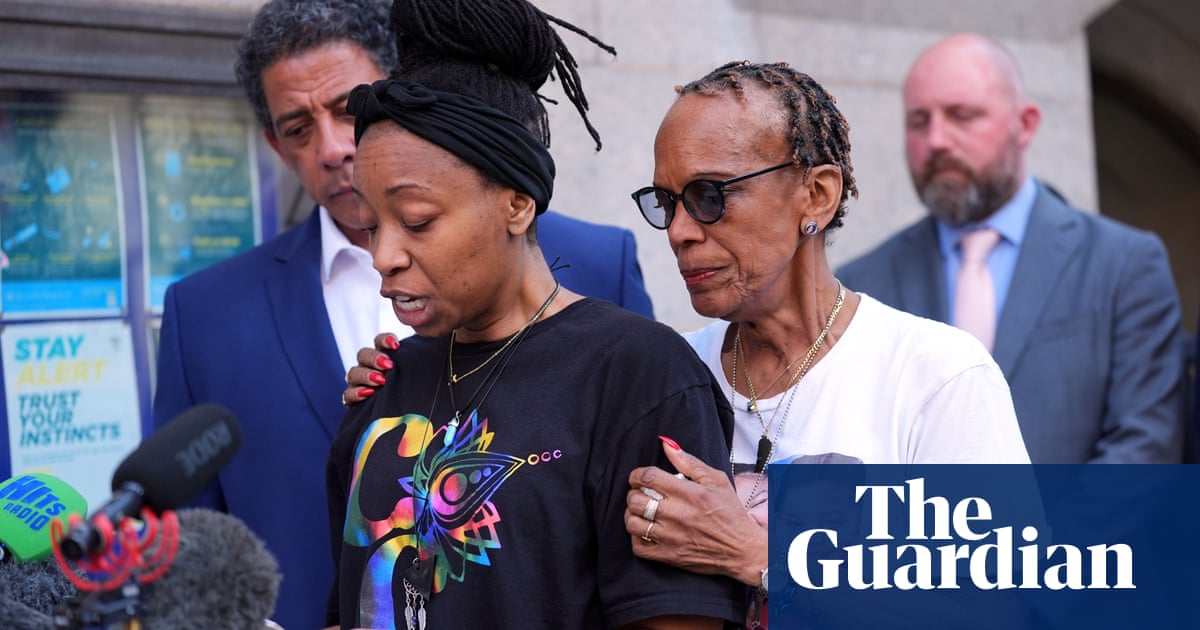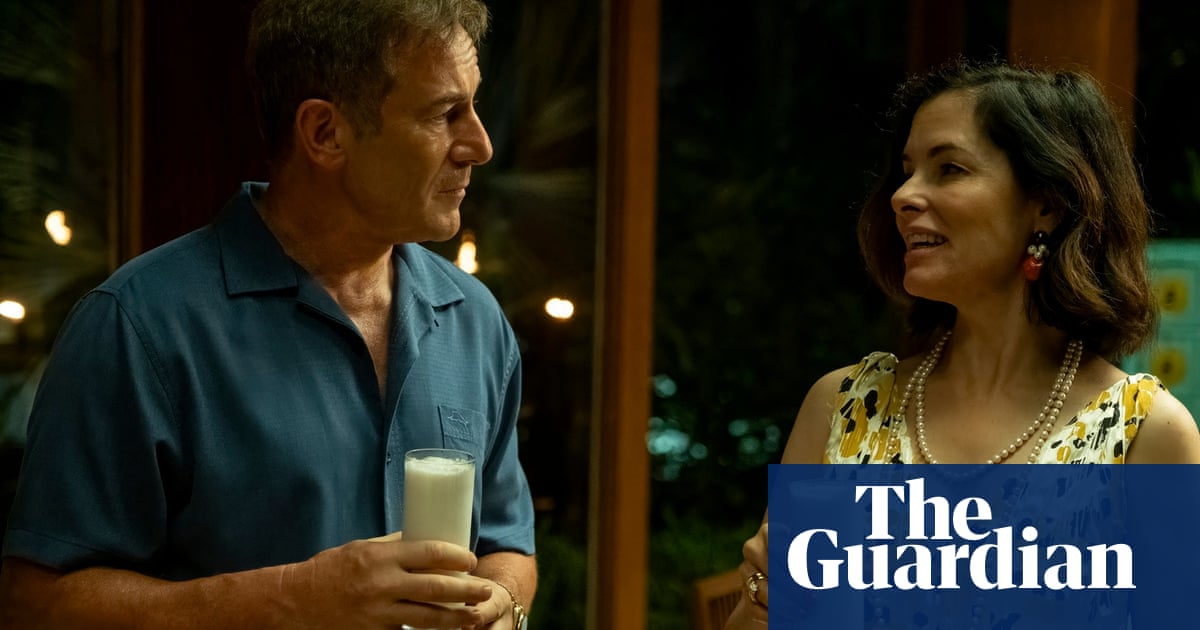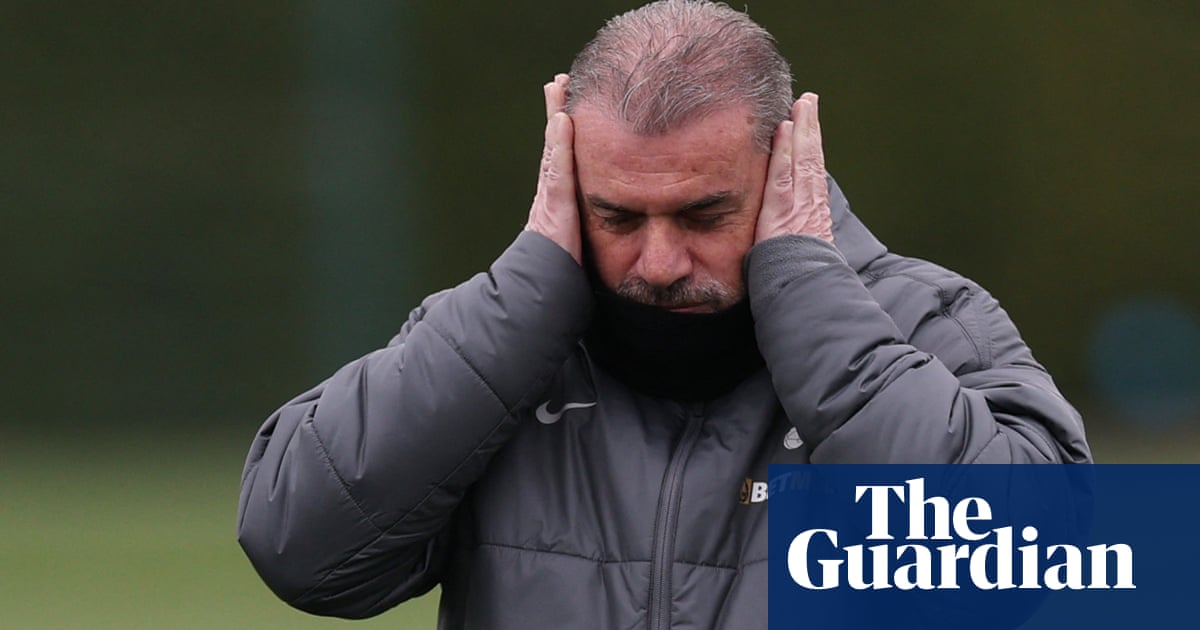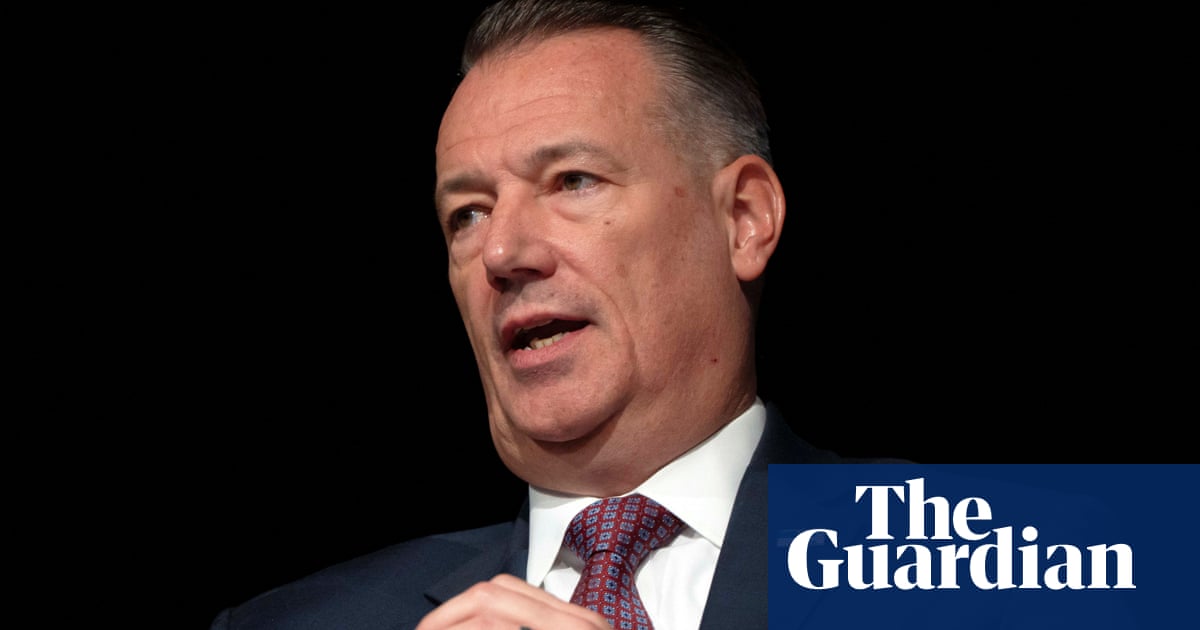The view from the plastic chair in which Fatou Samba sits, looking out to sea, takes in many of the elements of the sorry tale of Senegal’s lost men. She can see the distant shapes of the big industrial foreign fishing ships and tankers, from Europe and China, strung across the horizon.
Closer to shore are dozens of empty pirogues, Senegalese wooden fishing boats, rocking idle on a sea mostly denuded of fish.
On the beach itself, just where the small waves break, bringing in their crust of plastic waste, is a heap of masonry rubble. “That was the mosque,” Samba says. The ends of her own house, a U-shape with the two arms facing out to the beach, have also crumbled, including her bedroom. “On 19 August the sea took it, the bed and the walls,” she says, nodding at the rubble. “Soon the sea will take it all, this house my grandparents built.”
The dramatic coastal erosion here in Bargny, where generations have built lives around fishing, has been exacerbated by the dredging of a deep water port for international shipping further along the coast. Samba says the homes of 17 neighbouring families have been washed away in the past six months, dragged out on tides that keep on rising.
But the saddest sight Samba saw from her plastic chair was in November, when her 22-year-old son, Thierieno, left for Spain.
“I sat here watching him go, swimming out to the boat,” she demonstrates a one-armed breast stroke, “one hand holding up his phone out of the water.”
For Thierieno, getting a job was difficult. He couldn’t follow his father into the dying fishing industry, but it was the peer pressure that finally got to him, sending him overseas to join the mass migration of men – and increasingly women and children – who are leaving a Senegal where they cannot see a future.
“He didn’t want to go; his father didn’t want it; but his friends were sending him messages, videos, from Madrid to come. It looked as though he had no courage if he stayed. It shamed Thierieno,” Samba says.
The 930 miles (1,500km) of Atlantic Ocean from Senegal to the Canary Islands, where people apply for papers to allow them to work in mainland Spain, is one of the riskiest migrant routes in the world, taking five or six days in an open pirogue.
Last year there were 10,457 officially recorded deaths on the route, but many more never make it to the status of an international statistic, drowning without anyone recording their loss.
Youth migration was a key topic in the closely fought elections last March; not just a demand to tackle Senegal’s raging unemployment and build climate resilience but also to wrest back the country from France’s colonial grasp, including taking back control of fishing licences being sold off to too many EU boats.
The newly elected president, Bassirou Diomaye Faye, has called on young people to stay in Senegal rather than seeking the “illusion” of a better future elsewhere.
“From now on, the relentless hunt for these illusion-peddlers, these peddlers of death, will be stepped up,” he said, announcing that a hotline to report the activities of people smugglers would be set up.
But a year on from the excitement and hope around his taking office, there are few signs of change in the scale of the dangerous exodus.

The number of west African migrants taking small boats to reach the Canaries has seen a dramatic rise over the past three years – under 20,000 migrants arrived in 2022, 32,000 in 2023, with a record 46,843 reaching the archipelago in 2024, according to the EU’s border agency, Frontex.
Samba and her two friends list the names of 13 people they know who have died out there in the past three months. “Even last year it was better, now people go in secret.”
The risk is not just from dangerous sea conditions, but from poor quality of navigational equipment and even engines – although manufacturers in several European countries are enjoying huge profits from the sales of both.
Delirium and sunstroke are also commonplace among people on the open boats. Ndeye Sall’s husband, Usman Jouff – a construction worker and a ceremonial drummer – was one of several men from her street who drowned on 23 September.
Jouff was among those whose death at sea was not due to a sinking, but who were so delirious from being in an open boat for days at a time with little shade, food or water that they slid over the side. “The ancestors called him,” Sall says. “This is not something he wanted to do. The other man told his shipmates he was going to the shop and jumped overboard. Others slip into the water at night.”
Sall is now trying to raise the couple’s eight children alone.
“I pleaded with Usman not to go,” she says, then covers her face to weep. “But he was so tired of trying to work enough to feed all the mouths. I will forbid any of my children from taking the ships.”

Jouff’s friend, 63-year-old healer Ousseynou Ndiaye, moves out of earshot of the crying widow to express his own frustration. He is angry at those who go abroad and then fill the heads of struggling Senegalese people about a glittering new life through “lies and boasts”.
“The young people are not guilty here, it is not their fault. It is the ideas put into them about other countries.
“No one is starving in Senegal, there is some little job for everyone – but they see that a family who has someone abroad can build a little house with money sent home.
“So they think they are nothing if they cannot do this for their families too. Our young people are wandering around looking for work; they need training and they need work. This is what the new government can do, what it promised: create work.”
after newsletter promotion
The town of Kayar, with its long sandy beach frilled with plastic and other miscellaneous human-made muck brought in on the tide, used to be a busy working hub for the local fishing industry. Now, the processing building, the fishmeal factory, the long rows of drying tables, the concrete gutting pools, are all empty or closed.
“This was always full of people. Now it’s so empty, even in just a few years,” says Jiban Sourey, a local politician in Kayar. “In October 2023 a ship from this town disappeared, full of people and still there is no information. But despite this, the young people take the risk, some are going at even the age of 15.
“It’s not easy to get the message out that it’s possible to be successful here: you are fighting against a tide of what young people have seen on social media. In Kayar, just along the beach, we have some new houses being built by those who have sent money home, so people see this and think they can also go to Spain and earn money for a house.
“And if they are not being properly taught at school; if they are not being trained in anything else but fishing; of course they feel obliged to take the risk. Now they don’t tell their parents, they just go. We would all prefer our children to stay here.”
Dozens of people would have worked here a few years ago, but today just three women, swatting away the omnipresent flies, sit on nylon mats under the sunshield of a plastic sheet tied to driftwood posts. They buy fish when a boat brings in its catch, then gut it and sell it on. These days business is slow to dead. All have seen family leave.
Maguette Dieng didn’t know her sons’ plans. They were there one evening and gone in the morning. The eldest, Mussa Gueye, 21, arrived safely in Spain last month but she has had no calls from Babacar Gueye, 19. “He is missing,” she says.
Khady Diack looks at her phone constantly, a lovesick woman waiting for a message from her husband. “I miss him like … aaaaahhh,” she folds over, thumping her chest. “I am lonely. If I had the opportunity I would go too,” she says. “I just want him to come back,” says Diack.
Adama Khoule nods: “There is no one left to help, so it’s hard; even the youngest go. Many of them borrow the money. My son has gone and left his debts, which has caused a lot of problems for me. We’re really tired.
“They say ‘Barca wala barsakh’ – Barcelona or death – this slogan is what they all say,” she says.
Like most people left behind there is as vague an idea of where Spain is as there is of who owns the great vessels on the horizon that have been sold licences to fish out their waters. “Strangers,” says Khoule. “Foreigners,” says Diack.
Ass Mbaye has only come tantalisingly close to Spain. On a Sunday evening at Thiaroye, a Dakar suburb, children are playing on the beach, swimming out in a sea glowing pink as the sun drops. Mbaye is sitting on a beached pirogue with friends Ibrahime Niang, Birane Mbaye and Mayoro Niang.
“We are the last men in Thiaroye,” jokes Birane Mbaye. Although not for long. Three of them plan to leave in the coming weeks. Only Ibrahime Niang intends to stay – he has a child with a disability he doesn’t want to leave.
The rest are just waiting for the right weather, boat and opportunity. Ass Mbaye let one boat go without him a few nights earlier because he didn’t like the look of the sea conditions but he is a veteran of the migrant trail. He has just returned from Morocco after five failed attempts to get from there into Spain. It’s an alternative route for those who can afford it, a flight to Morocco, where Senegalese need no visa, then a boat – or swim – into Spanish territory.
“They catch you then beat you up and dump you in the desert. You need to cross the Sahara to come back here,” says the 37-year-old. “We passed some dead bodies on the way. Some just do not make it in the desert.
“My friends said come back to Senegal and try to go by sea. So this is what I will do.” Chewing reflectively on a twig he says: “When we were all younger, there was no question of leaving Senegal. Who would want to? We had our fishing and a good life.”
Samba knows her son Thierieno got safely to Spain but every week she sees people without experience of the sea taking more and more risks, as social media channels are full of young Senegalese posting airbrushed depictions of success in Spain.
She calls the police or the mayor if she sees young people preparing to leave on an inauspicious or bad weather day.
“In this community, all the men, the fathers, the uncles, the children, even four years old. Men who are from here, they all go. It’s normal now,” she says, settling back in her chair. “We are just women left.”

 2 days ago
13
2 days ago
13













































